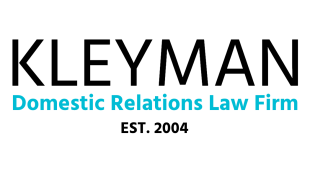
Best Divorce Lawyers New York: Disagreement About Children & Vaccination
What if divorcing or divorced parents disagree on whether their children should receive the COVID-19 vaccine?
COVID-19 has had an incredible impact on how law is practiced in New York, and this is especially true for divorce and family law. Pandemic or not, parents often have disagreements about raising their children, and the COVID-19 lockdowns have exacerbated already tense situations. When a couple is also going through a divorce – and is thus more prone to disagree and to mistrust one another’s motives – it can be doubly challenging to have discussions about things such as: whether it is better for a child to be at school in-person or learning remotely; the benefits of spending time with other children versus the health concerns; and the logistics of parenting time. It would be best to see k the advice of the Best Divorce Lawyers New York.
One issue at the forefront is the issue of COVID-19 vaccines for children. The American Academy of Pediatrics continues to push for more trials and testing so that younger and younger children can be vaccinated. But even as these vaccines get approved by the FDA and become available, parents will have to agree about whether or not their children will receive them.
There has always been conflict between the law – which is focused on promoting the welfare of the entire community – and the individual. In 1905, when a man refused the smallpox vaccine in the state of Massachusetts, the issue went all the way up to the U.S. Supreme Court. The Court determined, in Jacobson v. Massachusetts, that the police power of the government allows for vaccinations to be mandatory to “guard and protect” public health. It is this “police power” that allows schools to require children who attend to be vaccinated.
More and more people, however, are expressing distrust of vaccines and many adult Americans are refusing to be vaccinated against COVID-19. What happens when one parent in a divorcing couple wants their child to be vaccinated and the other doesn’t? Parents have the responsibility and authority to make medical decisions about their children – and this includes a right to refuse medical treatments. The courts in New York also have a responsibility and authority to make decisions for children based on the “best interests of the child.” Medical caretakers such as doctors and nurses also have an ethical duty to advocate for the best interest of their patients and must report parents of children they believe are being neglected or abused. What happens when the parents, judges, and medical professionals have differing beliefs about what will be best for a particular child with regard to a COVID-19 vaccine? This will be a major issue for courts, and it is difficult to predict how such conflicts will be resolved.
One possible guide is to look at some of the ethical frameworks used in hospitals to override a parent’s medical decision making for a child. A review of the clinical paper “Overriding parents’ medical decisions for their children: a systematic review of normative literature” by Rosalind J. McDougall and Lauren Notini, provides some insight.
According to Best Divorce Lawyers New York, the concept of “harm” allows a medical professional to override a parent’s decision to refuse treatment if the parent’s decision would place the child in imminent, serious harm. There must be evidence that the treatment that is being refused is necessary to prevent the harm, that there are no comparable alternatives, and that there is a proven track record of effectiveness of the treatment. This is problematic with the COVID-19 vaccine because it will be brand new when it becomes available.
Other ethical frameworks work within similar bounds, requiring that the medical professional look to a consensus among medical experts to determine if the treatment is not experimental and is appropriate for the child, and that experts agree the treatment will promote normal healthy growth.
Another way to look at the situation is to examine whether the choice a parent is making actively causes harm to the child – a standard that is easier to assess, relatively, than asking whether the treatment will bring about positive effects.
Best Divorce Lawyers New York say that many of the ethical frameworks also look to what is deemed to be “reasonable” – not just in the eyes of experts, but by laypersons. Would the “average” parent choose the treatment or refuse it? Is the parent making the decision from a rational perspective or an irrational one (i.e. anger at the other parent)?
Depending on the age and maturity of the child, the medical professional or court can also directly ask the child. The child’s decision-making capacity would need to be assessed, and then their expressed choice would need to be evaluated against the above factors, just like a decision made by a parent.
Suffice it to say, this will be no easy task. Courts will no doubt be asked to make decisions about this issue, and the careful judge will have decades (if not centuries) of scholarship to review before coming to any conclusions.
If you have any questions, please contact the Kleyman Law Firm, qualified Best Divorce Lawyers New York, nyc-divorcelawyer.com.
